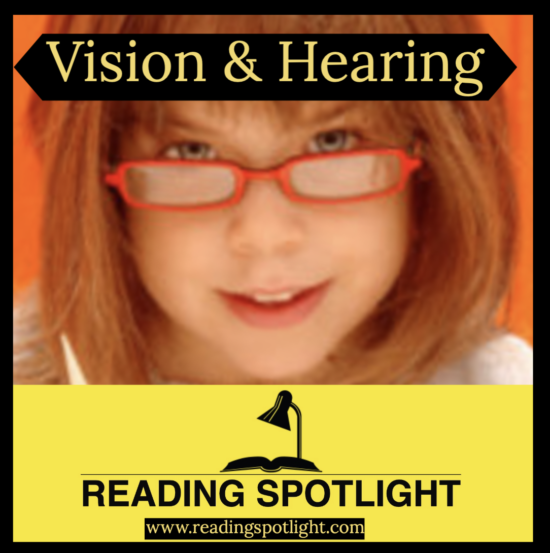If your child is having difficulty learning to read or not having success in school after first grade, it is important to understand that vision and hearing affect reading in various ways. A vision and/or hearing screening is advised if a child displays signs of difficulty. These aspects can then be put to rest or corrected, if necessary. Vision screening in schools often covers only farpoint vision, but the reading of books (nearpoint vision) sometimes is not evaluated.
Vision Screening
Here are some signs of vision problems that indicate that a child probably should be seen by a vision care specialist:
- Holding a book very close
- Turning head to use only one eye
- Squinting for near or far visual tasks
- Moving head back and forth, rather than eyes, while reading
- Omitting letters, words, or phrases
- Difficult-to read-handwriting
- Mistaking words with similar beginnings
- Miscalling or omitting small words
- Excessive blinking or watering of eyes
- Complaining of double vision
- Headaches during or after reading
- Misaligning digits in columns of numbers
- Writing uphill or downhill
- Skipping words while reading
- Excessive rubbing of eyes during reading
For more vision information please visit: drlampert.com/kids-vision
Hearing Screening
The effect of hearing problems on reading is especially high in the early grades when a large amount of instruction is oral. If your child has a hearing problem, programs which stress the visual (word families) rather than the auditory (phonics) might be more effective. Most of Reading Spotlight’s decoding practice pages focus on a word family approach. Fun activities, such as Word Searches, Bingo Games, and Crossword Puzzles can be found in the Reading Spotlight Store.
Here are some signs of possible hearing difficulty which indicate that your child might need to be screened by an auditory care specialist:
- Child often asks to have statements repeated
- Child often misunderstands simple directions
- Reports of ringing or buzzing in the head
- Tilting of head toward speaker
- Scowling with strained posture while listening
- Frequent colds and earaches
- Insistence on turning up volume on TV, radio, etc.
© Reading Spotlight 2020


